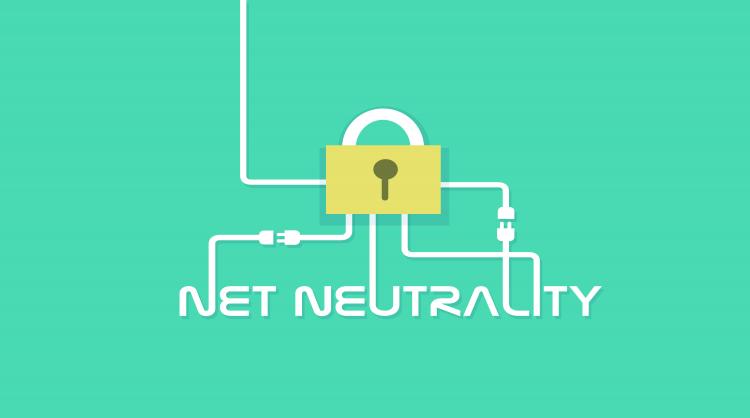Commercial Network Services Pursues Net Neutrality Complaint againstTime Warner Cable
September 18, 2015 | by Andrew Regitsky

One of the chief concerns for Internet service providers (ISPs) is the FCC’s decision in the Open Internet Order to regulate their traffic exchange with edge (content) providers. In the Order, the Commission decided for the first time, that it would review these interconnection agreements on a case-by-case basis to determine if they are unjust or unreasonable under section 201 of the Telecommunications Act. Until now, these agreements were always considered commercial contracts outside the purview of the Commission. The reclassification of broadband Internet access service to a telecommunications service changed that and now allows the Commission to become actively involved in reviewing these agreements if it chooses to do so.
This is a tremendous worry for ISPs, because it means that all such interconnection agreements could be subject to price regulation if the Commission decides that a proposed traffic exchange price violates section 201. While the Commission claimed in the Order that it would forbear from Title II Internet price regulation, critics noted that it provided itself a backdoor way for it to control ISP pricing by not forbearing from enforcing section 201.
While, we have not yet had any test cases to actually observe the Commission’s Internet pricing regulatory strategy, we appear to be on the eve of the first. That's because, on September 9, 2015, Commercial Network Services (CNS) told the FCC there was no hope for it to reach agreement with Time Warner Cable (TWC) and, therefore, it would pursue its complaint alleging that TWC was charging unjust rates to deliver its streaming web cam video to customers.
CNS is a San Diego based company that provides service for algorithmic traders in 160 countries who use its virtual desktops and servers to host their automated trading applications. CNS wants TWC to carry its traffic for free, but the cable company claims that CNS does not qualify for a settlement-free deal.
The edge provider filed an initial informal complaint with the FCC on June 22, 2015, but the Commission requested the parties to seek agreement before proceeding with a formal complaint.
In the informal complaint, CNS claimed that TWC is violating the Commission’s “No Paid Prioritization” and “No Throttling” bright line “Open Internet” rules by sending its traffic through high latency often highly congested routes instead of directly to the edge provider through low latency peering routes. It also sought to interconnect with TWC for free.
TWC responded that its interconnection practices are not only just and reasonable as required by the FCC, but consistent with the practices of all major ISPs and well-established industry standards:
CNS’s Informal Complaint does not remotely demonstrate any violation of the 2015 Open Internet Order or the Commission’s rules. Rather, CNS asks the Commission to establish a new mandate of “open peering” that would result in tremendous inefficiency and would upend market-based Internet traffic-exchange practices that for many years have functioned successfully “without significant Commission oversight.” Broadband providers such as TWC enter into settlement-free peering agreements with other network operators where various technical criteria—including total traffic volume and the ability to interconnect in multiple locations—are satisfied, and where there is a mutual exchange of value. CNS did not satisfy those criteria and thus did not qualify for settlement-free peering under TWC’s industry-standard policy. Nevertheless, CNS—like countless other edge providers around the globe—can reach TWC’s broadband subscribers by availing itself of competitively priced transit services offered by a wide range of backbone providers. That CNS does not wish to bear the modest costs associated with such transit services does not establish a regulatory violation (Response of Time Warner Cable to Commercial Network Services Informal Complaint, filed July 24, 2015, at pp.1-2).
In an August 4, 2015 response, CNS amended its informal complaint to argue that TWC was violating the Commission’s “no-unreasonable interference/disadvantage” standard, in addition to violating the “no throttling” and “no paid prioritization” rules. It claims that under the “case-by-case” review standard it authorized for itself, the FCC has plenty of authority to order TWC to interconnect with it for free.
Most industry observers believe that the CNS case is frivolous and the Commission would never require all ISPs to interconnect with all edge providers for free (i.e., a settlement free- peering arrangement). After all, someone has to pay for constructing interconnection hubs and transporting traffic. And the transiting of traffic between edge providers and ISPs is a big business. However, there is a concern about how the Commission will reject the complaint. Will it do so on a technicality and avoid taking a position on the pricing of such edge provider-ISP interconnection agreements? Or, will it state unequivocally that it will not regulate the pricing of such agreements? The industry waits anxiously for the decision.
By Andy Regitsky, CCMI

